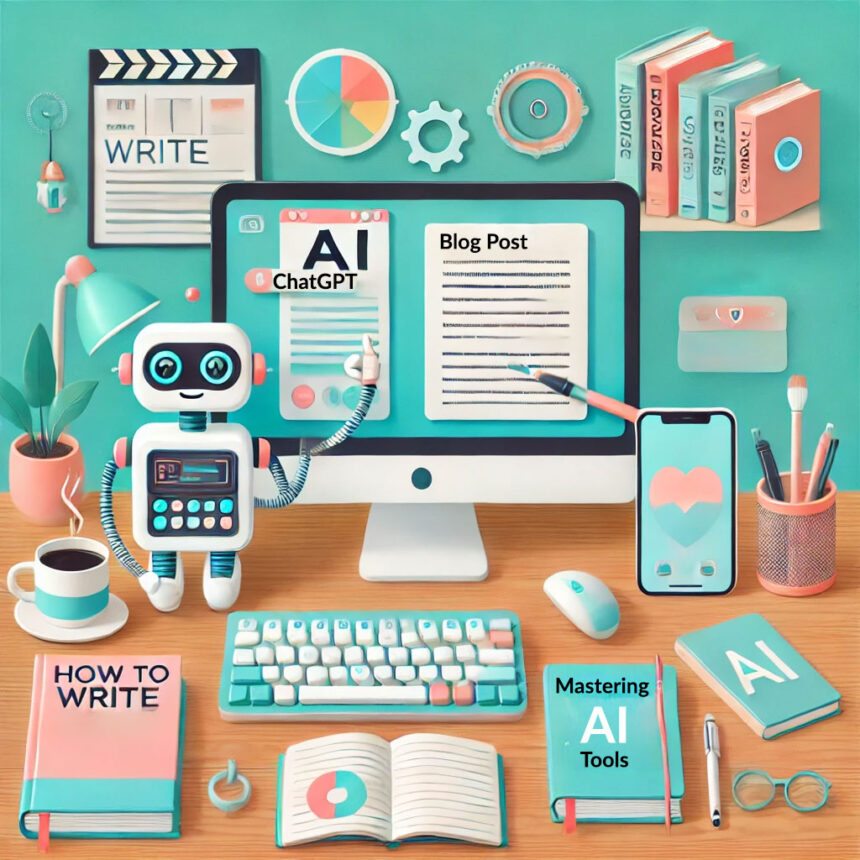AI: Some say it’s a writer’s best friend; others say it’s the sneaky little cousin that just can’t be trusted. As someone who’s juggling writing, designing, notary services, and freelance work (and still managing to keep the coffee cup count under 10), I get the appeal. AI can help you whip out content faster than you can say “deadline panic.” But before you let the bots take over your keyboard, let’s take a closer look at the pros and cons of using AI in writing—and how to stay one step ahead of the machines.
The Pros: Why AI is the Sidekick You Didn’t Know You Needed
- Speed and Efficiency
AI can churn out content faster than most of us can type “writer’s block.” Need a quick email or a social media caption? Done. Tools like ChatGPT and Jasper AI can generate drafts in minutes, helping you meet tight deadlines without breaking a sweat. - Consistency and Structure
AI is great at sticking to templates and maintaining consistency. Whether it’s proposals, newsletters, or blogs, AI tools keep your tone and structure intact, especially useful for longer projects like books or course content. - Grammar and Spell Check
Thanks to AI-powered tools like Grammarly, you’ll never have to worry about typos making their way into your writing. AI acts as your personal editor, catching those sneaky errors that slip by after your third cup of coffee. - SEO Optimization Made Easy
Platforms like Surfer SEO integrate AI to suggest SEO-friendly keywords and optimize your posts in real time. If SEO feels like a second language, AI can help you translate it into actionable insights—no degree required!
The Cons: When the Bots Get a Little Too Smart for Their Own Good
- Lack of Creativity
AI can be fast, but it’s not exactly the next Hemingway. While it excels at structure, it struggles with originality and emotional depth. Your personal touch? That’s still all you, my friend. - Can Sound Robotic
Let’s face it: No one wants to read a blog that sounds like it was written by a toaster. AI-generated content can come off as stiff and mechanical if you’re not careful. It takes a bit of finesse to edit AI’s drafts into something that feels human. - Risk of Plagiarism
AI scrapes the web for information, which means it can accidentally generate content that’s a little too similar to existing sources. That’s a big no-no in the world of writing, so always run your content through plagiarism checkers like Copyscape. - SEO Challenges
While AI tools can help with SEO, they aren’t perfect. Google’s algorithms are getting smarter at detecting bot-written content, which means relying too heavily on AI could hurt your rankings in the long run.
Recommended AI Tools to Try (With Caution)
- ChatGPT: Great for generating content ideas, social media captions, and blog drafts.
- Grammarly: Your go-to AI-powered grammar checker and personal editor.
- Jasper AI: Ideal for writing long-form content like ebooks, proposals, and newsletters.
- Surfer SEO: Integrates SEO recommendations into your content creation process.
- Quillbot: Helps rewrite and paraphrase text to give it a human touch.
How to Outsmart the Bots (And Keep Your Voice Authentic)
- Edit with Care: Always read through AI-generated content and inject your unique voice. Think of AI as a rough draft generator, not the final word.
- Mix in Personal Stories: AI can’t compete with your life experiences. Pepper in anecdotes to add authenticity and make your content relatable.
- Use AI as an Assistant, Not a Replacement: AI can help with outlines, research, and grammar, but the core creativity should still come from you.
- Run it Through Plagiarism Checkers: Tools like Copyscape ensure your AI-generated content isn’t unintentionally copying someone else’s work.
Conclusion: Embrace the Bot—But Don’t Let It Run the Show
AI has its place in the writing world, but it’s not here to replace you. It’s here to help, to assist, and to make the process a little easier when your brain needs a break. Think of it as your overzealous intern: eager to help but still in need of supervision. The magic lies in striking the right balance—using AI to handle the repetitive stuff while you focus on crafting the heart of your content.
Whether you’re blogging, writing a book, or composing emails, AI can speed up the process, but your voice is irreplaceable. So, go ahead, use those tools—but remember to stay human in a bot-driven world.

